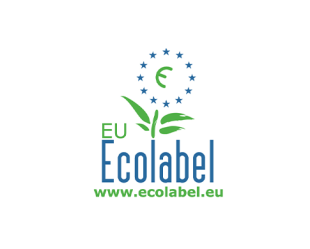- Cebr report shows standards boosted exports by €415m a year up to 2013
- 23% of all trade growth linked to businesses using key international standards
- NSAI-commissioned study also shows standards support almost a fifth of GDP growth
Standards play a pivotal role in supporting Ireland’s continuing economic recovery by significantly boosting trade and GDP and creating new jobs, according to a major new study published by NSAI.
Download the report: Economic Contribution of Standards in Ireland
The report conducted by the Centre for economics & business research (Cebr), found that the use of key international business standards by firms contributed 23% to recorded trade growth between 1996 and 2013. This translates to an additional €415million in exports every year during the same period. The findings come as the European Commission is forecasting that Ireland’s economy will expand by 3.4% this year.
“The use of internationally recognised standards by businesses can lead to lower transaction and search costs, which reduce the need to adapt products for foreign markets”, said Oliver Hogan, Director at Cebr. “In the past, standards were viewed as curtailing trade, particularly where national standards were used to restrict competition from imports in the domestic market.”
“But that changed with the development of standards at European and international level. They are seen as vital to ensuring the dismantling of international barriers to trade and overseas market entrants where they still exist and are unnecessarily restrictive”, he added.
Impact of Standards on Exports
Compliance Engineering Ireland, based in Dunshaughlin in Co Meath, is one business that would not exist without standards. The company tests and assesses other organisations’ products and machines to ensure that they are safe and can be used or sold in other countries around the world.
“All of our business stems from testing to standards. We depend on our accreditation to key international standards for testing laboratories to ensure acceptability of our reports worldwide” said John McAuley, Managing Director of Compliance Engineering Ireland.
“For example, if you take the CE Mark, which is required by law to be displayed on all electronics, children’s toys and construction materials sold in the EU, a product that is CE Marked can be sold in the 28 member states, as well as the Middle East, Africa, Australia and New Zealand with minimum hassle.”
“That is a prime example of how standards help Irish businesses export their products easier every single day,” he added.
Impact of Standards on the Economy
And it is not just exports. The Cebr report also highlights the impact standards can have on Gross Domestic Product (GDP) growth, the monetary measure of the total output of the economy. It estimates that standards are currently facilitating a substantial 17% of GDP growth, which equates to approximately €335million of the total €1.95billion in GDP expansion between 2006 and 2013.
The London-based economic think-tank estimates that this growth led to the creation of an additional 900 permanent full-time equivalent jobs during the same timeframe.
“The positive impact of standards on both individual businesses and the wider Irish economy is clear from this report”, said NSAI Chief Executive, Geraldine Larkin, “Over 1,500 standards are published each year amid a sea of EU regulation, so it can be challenging for smaller companies to keep informed about trading requirements and ways to ensure their businesses remain competitive.”
“NSAI has the standards and technical knowledge to provide firms with services to ensure the company not only has a more cost-effective way of complying with regulations and standards, but also is better equipped to grow and secure more tender opportunities. With Brexit on the horizon, Irish companies may be looking at new ways to expand.” she added.
As the national standards and measurement body, NSAI currently has over 10,000 certificates issued to companies based in Ireland, including 500 to global medical device companies.



